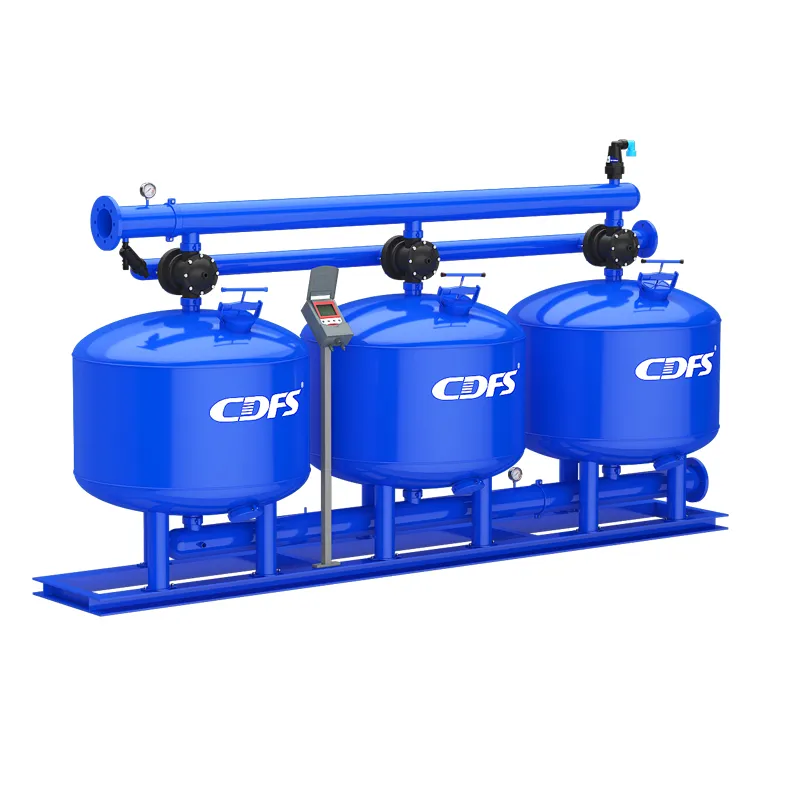
When it comes to agriculture, water isn't just a resource—it's the lifeline of crops, greenhouses, and orchards. But here’s the catch: not all water is clean enough to go straight into irrigation systems. Suspended particles, organic matter, and sediments can clog drip lines, damage pumps, and reduce system efficiency.
Irrigation filters, like sand filters, really play a quiet but important role in farming today. They keep irrigation systems running smoothly, protect equipment, and ensure crops get the clean water they need to thrive.

In farming, efficiency is everything. The goal is to deliver maximum water flow to crops while keeping energy costs down.
Traditional filters often reduce water pressure, forcing pumps to work harder. But modern sand filter irrigation systems are designed to maintain high flow rates with minimal pressure loss. It's a win-win: cleaner water with better efficiency.
For greenhouse operators, this means drip lines won't clog or underperform. For field irrigation projects, pumps don't need to overwork, saving both energy and maintenance costs.
Space and cost matter, especially for large-scale irrigation projects. Traditional filtration systems often require heavy infrastructure and extensive piping. Now, modularized irrigation filter setups are compact, saving valuable space and reducing the investment needed in piping.
Engineers can customize the layout according to field or greenhouse size. Greenhouse managers appreciate the easy integration into existing systems. Distributors benefit from offering a cost-effective way to clients worldwide.
This flexibility makes it simpler to grow projects of any size, from a small orchard to a big commercial greenhouse.
No two irrigation projects are the same. Some require small, localized systems, while others need heavy-duty solutions for thousands of hectares.
Modern sand filter systems can be set up as:
This scalability is especially valuable for export buyers and international importers, who need reliable, adaptable filtration systems for diverse markets.
One of the biggest headaches in irrigation management is maintenance. Manually cleaning filters is time-consuming and interrupts water supply—something crops can't afford.
Modern sand filters with automatic backwash technology solve this problem:
Less manual labor means reduced operating costs and improved system reliability. For water resource managers, this feature guarantees consistent supply and reduces downtime. For technicians in the field, it means fewer maintenance calls.
1. Why is filtration so important in agriculture?
Because unfiltered water clogs irrigation lines, damages pumps, and reduces system efficiency.
2. How often do sand filters need maintenance?
With automatic backwash, maintenance is minimal—only periodic inspections are needed.
3. Can sand filters work in both small and large irrigation projects?
Yes! Single units fit small farms, while multi-parallel systems support large-scale agriculture.
4. Do sand filters waste water during backwash?
Modern systems are designed to minimize water waste and ensure continuous supply.
5. Are sand filters suitable for export markets?
Absolutely—they're modular, compact, and adaptable, making them a top choice for international projects.
The future of farming isn't just about seeds and soil—it's about smart water management. A sand filter isn't just something you add to your setup. It's a smart choice for keeping your crops healthier, making your system run smoother, and making sure it lasts a lot longer. These filters are changing the way water gets to crops around the world. They have high flow rates, can be built in different ways, are easy to customize, and automatically clean themselves through backwashing.
